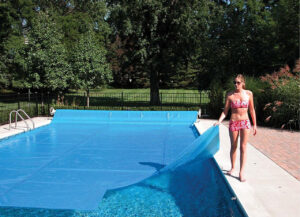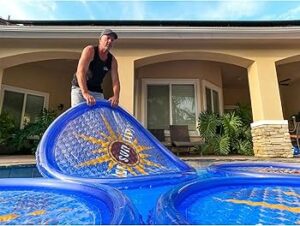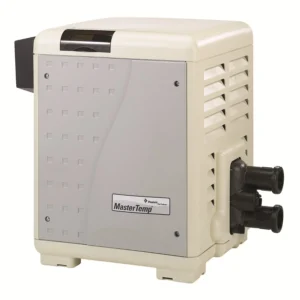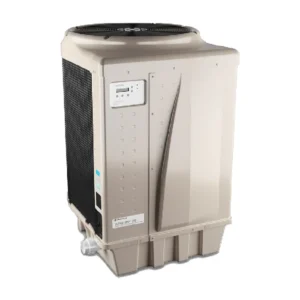As a professional in the industry for over 20 years. One of the biggest questions we are asked every year around this time is, ” How can we extend our swim season”. With that said, here are a few of the items that can get you through a few more months on either end of the swim season.
Solar Cover & Solar Ring Heating
Solar Covers are one of the more common, cost effective “extend your swim season” methods. A blue bubble cover that covers the pool that’s designed to heat the pool during the deck and retain the heat in the evening. A primary cause of heat loss in a pool is evaporation, which can pull 70% of the heat from your pool. When used properly, solar covers can reduce evaporation by 90% and heat the pool water as much as 15 degrees Fahrenheit over several sunny days. There are also several chemical liquid covers that for a thing, invisible barrier on the pool water surface to reduce water and chemical evaporation, also preventing heat loss.

Solar Rings are an alternative to the large solar cover that covers the entire surface of your pool. Solar Rings are mad of heavy duty UV resistant vinyl, solar rings are large disks about 60 inches in diameter, that float on the pool’s surface. Just like the Cover, they heat the pool during the day and retain the heat at night. They aren’t as effective as the cover, however, they still prevent evaporation, they are easier to store and handle.

Gas
While not eco-friendly like heat pumps, gas heaters are the most powerful way to quickly and effectively heat pool water and extend the pool season. Using either propane or natural gas, pool heaters can increase water temperatures by 30 degrees Fahrenheit or more, providing weeks or even months of extended pool time. This will be your most costly option, but also your most effective way to extend your swim season.

Electrical
Eco-friendly heat pumps are ideal for mild-to-warm climates, as they rely on air temperature to heat the pool water. The refrigerant in the heat pump absorbs heat from the surrounding air and transfers the warmth into the water through a heat exchanging system. The process is similar to how an air conditioner works, just in reverse. They are most efficient when the air temperature is above 50 degrees. They can be misconstrued that they will work during the winter, and they will, but not like a Gas heater.

We’d be happy to help you extend your swim season in Phoenix, Arizona. Call today to find out what it would cost you to add a heating option to your pool!
